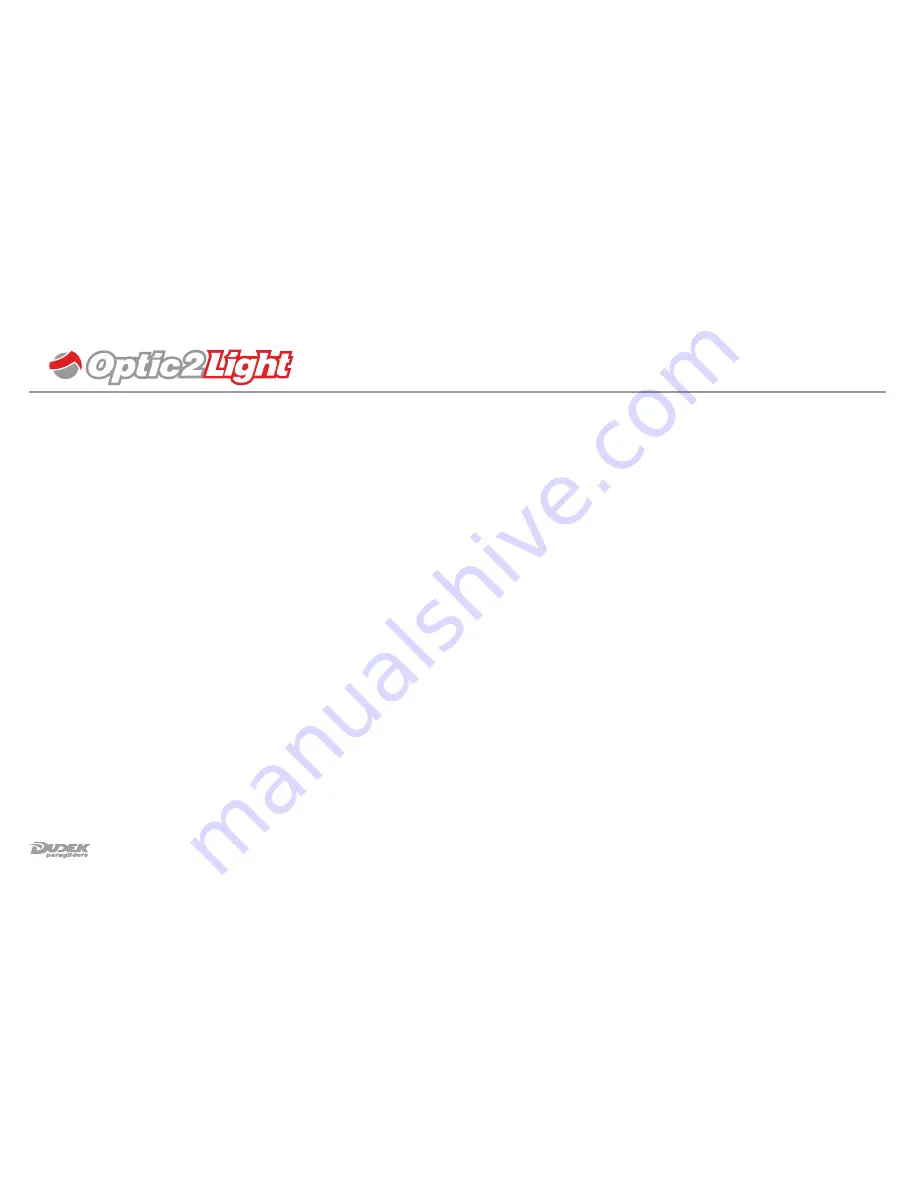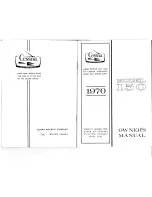
deterioration - a few tips
24
keeping the paraglider packed away when not in use. Even when
packed in a bag, it should not remain in the sun for long.
Suspension lines in this paraglider consist of Technora inner core
and polyester sheath. Submitting them to excessive bending and
loading in flight should be avoided, as it can cause irreversible
damage.
Please note that with frequent kiting on a field or a small hill your
paraglider will deteriorate more quickly due to its repeated rising,
falling and being dragged around.
Uncontrolled strong wind takeoffs or landings can result in the
leading edge of the canopy hitting the ground hard, which may
seriously damage the ribs, sewing and surface cloth (including
coating damage).
Keep the paraglider clean, since getting dust in the lines and fabric
will reduce their durability.
Be careful to keep snow, sand or stones from entering the cell
openings: their weight can slow or even stall the glider, while sharp
edges can damage the cloth.
Prevent lines from catching anything, as they can overstretch or
tear. Never step on the lines.
Knots can chafe suspension and/or brake lines.
Check the length of your lines after tree or water landing, as they
can stretch or shrink. The lines can be measured at the
manufacturer or an authorised workshop.
After landing in water you should check the wing fabric as well,
since waves can cause the fabric to distort in some areas.
When taking the wing out of the water, always do this by trailing
edge.After a sea landing, rinse the paraglider with fresh water.
Since salt crystals can weaken the suspension lines even after
rinsing in fresh water,you should replace the lines with new ones
immediately after contact with salt water.
Frequent flying near oceans and seas accelerates deterioration of
the paraglider, as salt present in the sea breeze can make the lines
stiffen and even break.
Repairs
Repairs should only be carried out by the manufacturer, authorised
distributor or an authorised workshop.
It is acceptable to fix minor cloth damage with self-adhesive
patches included in the package.
Summary of Contents for Optic 2 Light earth
Page 1: ...user manual V 26 06 2017 ...












































